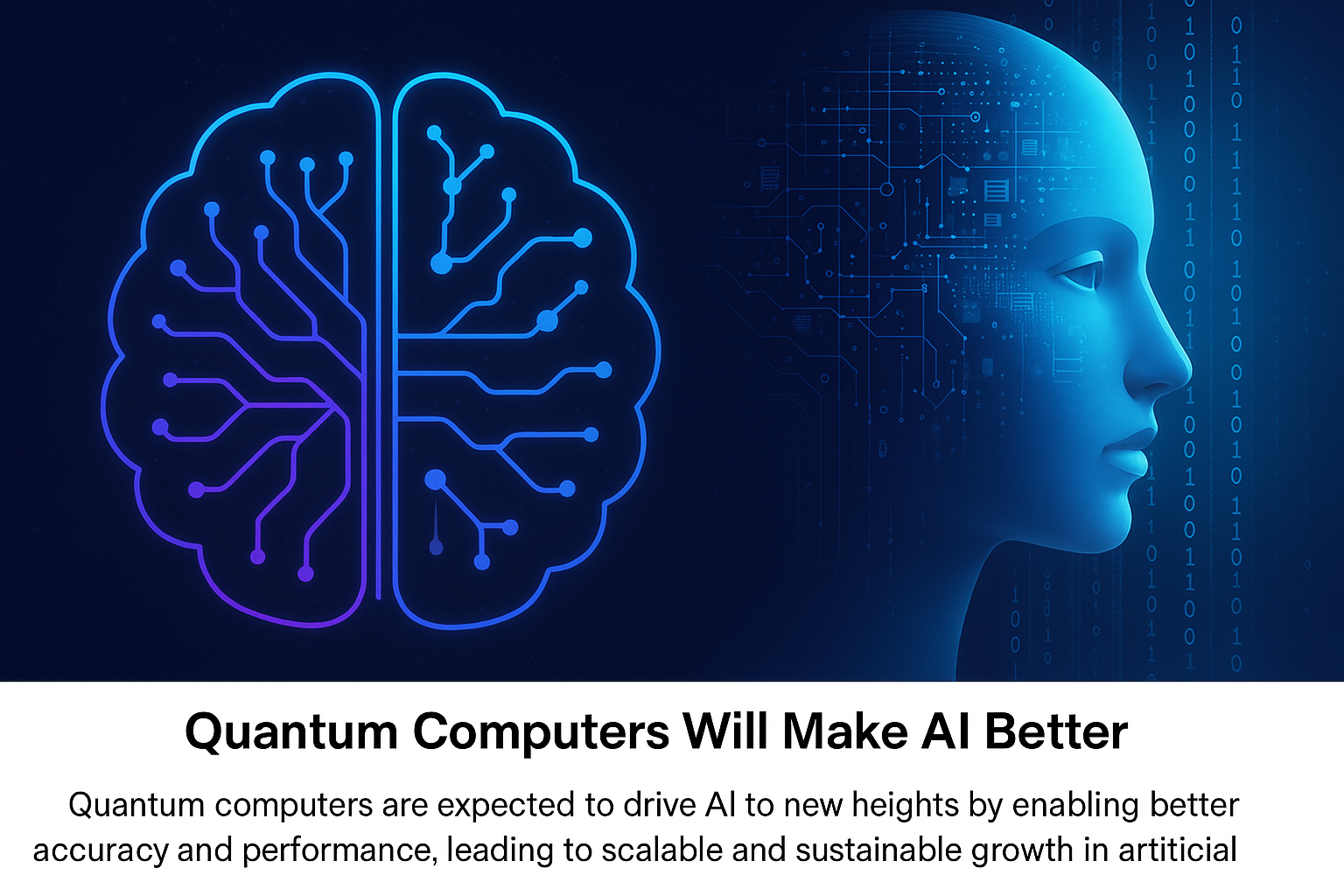In the race toward next-generation technologies, two forces stand at the forefront: artificial intelligence (AI) and quantum computing. While each is revolutionary in its own right, their convergence promises to reshape industries, redefine problem-solving, and unlock levels of performance that were once unimaginable.
A New Era of Computational Power
Traditional computers, even at their fastest, operate in a binary world—0s and 1s. Quantum computers, by contrast, use qubits that can exist in multiple states simultaneously thanks to superposition and entanglement. This allows quantum systems to process exponentially more data and solve problems that would take classical machines years—or longer.
Now imagine applying that power to the vast computations behind AI training models. That’s where the magic begins.
How Quantum Computing Enhances AI
AI, particularly deep learning and large-scale machine learning models, requires enormous computational resources. Training a model like ChatGPT or DALL·E involves crunching billions of parameters across terabytes of data. Quantum computing promises to dramatically accelerate this process.
Key benefits of integrating quantum computing with AI include:
-
Faster Training Times: Quantum algorithms can process vast datasets in parallel, reducing the time needed to train deep learning models from weeks to minutes.
-
Improved Accuracy: Quantum-enhanced models could simulate more complex environments, leading to better generalization, fewer errors, and more reliable predictions.
-
Efficient Optimization: Many AI tasks rely on optimization—finding the best solution among many possibilities. Quantum systems excel in this area, particularly for applications in finance, logistics, and supply chain management.
-
Scalability: As AI applications grow, from autonomous vehicles to advanced diagnostics, scalability becomes a bottleneck. Quantum AI can support more scalable architectures with lower energy requirements, making it more sustainable in the long term.
Real-World Impacts: Beyond Research Labs
The convergence of quantum computing and AI is already showing early promise in sectors like:
-
Finance and Investment: Quantum-enhanced AI can better forecast market trends, optimize portfolios, and detect fraud faster.
-
Healthcare: From accelerating drug discovery to modeling protein folding, quantum-AI integration could dramatically improve medical research.
-
Real Estate and Urban Planning: AI trained on quantum-processed data can deliver more accurate modeling of property markets, traffic flows, and sustainable city design.
-
Blockchain and Digital Economy: Quantum-proof cryptography, combined with AI for fraud detection and automation, could lead to safer, smarter blockchain platforms.
Challenges Ahead
While the potential is vast, we’re still in the early stages. Quantum hardware remains experimental, with noise and error correction presenting major hurdles. Moreover, developing quantum-compatible AI algorithms is an entirely new discipline, requiring fresh research and cross-disciplinary talent.
Yet, the trajectory is clear: as quantum computers improve, their synergy with AI will accelerate breakthroughs across all domains.
The Future Is Hybrid
In the next decade, we’ll likely see hybrid computing systems—where classical, quantum, and AI technologies work together. These systems won’t just be faster; they’ll be smarter, greener, and more adaptable, enabling innovations we haven’t even imagined yet.
This is not just a technological upgrade. It’s the dawn of a new cognitive age—where machines won’t just process information; they’ll understand it at levels previously thought impossible.




